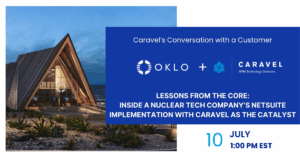According to WebFX, 87% of businesses use cloud-based CRM platforms, and 73% of customers express that their experience is a vital factor in purchasing decisions. A positive customer experience leads to repeat business, positive referrals, and an increased lifetime value. These experiences also influence the perception of an organization and can have long-term effects on its success. Investing in a solid Customer Relationship Management (CRM) system can help make or break an organization’s customer experience.
A good CRM is a powerful tool used to:
- Engage customers and boost relationships
- Track and analyze customer interactions with your organization
- Automate marketing campaigns
- Manage your sales leads
- Improve customer retention

What does a CRM do? 5 Top Features
Now that we are fully aware of how powerful a CRM is, let’s examine and answer some common questions circulating the customer experience and what a CRM can do to help.
-
Customer Data Management
Customer data management is the process of collecting, managing, and analyzing customer data. With complete and consistent data within a cloud-based CRM, organizations can learn more about their individual customers. This allows them to better provide relevant information that leads to customer retention.
“Given that a CRM [such as Salesforce] is cloud-based, it allows users to access that data from anywhere, even on the go on their phone,” says Max Holton, Salesforce Solutions Architect at Caravel. He adds, “It’s all being stored and updated in real-time. So, wherever you are, you always have the most updated information on your customer.”
Holton also iterates, “CRM can be structured to collect data points that are not only important to your customer, but important to your business. You can create fields to collect important customer data or collect specific operational data points to report on Key Performance Indicators [KPIs].” This feature allows users to better extract information from the customer. This information becomes useful to them later in the purchase process and enables them to sell more efficiently.
-
Process automation
An effective CRM can automate certain processes for marketing, sales, and customer service efforts that can catapult engagement and communication. This smart function eliminates repetitive processes like manual data entry, saving time so they can focus on activities of higher value such as:
- Building relationships
- Generating and nurturing leads
- Converting contacts into customers
- More attentive customer service and support
- Quicker customer response time
- Cross-channel communication enhancements
“Automated processes enable faster time-to-value for the customer and for the business. The faster the business can service the customer, the greater the customer satisfaction. By eliminating manual processes, you’re minimizing human error. You’re also expediting processes and removing bottlenecks that creates fluidity, promotes data accuracy, and expediting your sales cycle” explains Holton.
CRM automation can also provide users with valuable insights that helps them better understand customer behavior, preferences, and trends. This enables more targeted and personalized campaigns, which result in a much-improved customer engagement rate and conversion rate.
Automation in a CRM also helps to boost relationships with customers by tracking interactions, thereby enhancing the experience and empowering users to be more efficient, effective, and customer-centric in their efforts.
-
Customer Segmentation
A powerful CRM will allow its users to segment customers based on specific data points and provide more relevant messaging to those with diverse interests and needs. This will, in turn, improve sales and revenue, customer satisfaction, and the overall experience they have with your organization.
Targeting potential customers based on their preferences and behaviors is impactful. Segmenting lists augments the ability to create a more personalized experience and a more cohesive way to track the effectiveness of campaign and specific message. The organization can then re-focus its efforts based on results from testing these customer segments. Allowing you to establish better and more meaningful relationships.
“Companies only have a certain amount of salespeople or account managers, and with that, only a certain amount of bandwidth and human hours. By segmenting your customer, you can better allocate your internal resources and maximize that value. Avoid wasting internal resources on segments that are not generating value,” says Holton.

-
Feedback Management
One of the most valuable tools an organization uses to improve and enhance processes is customer feedback. An effective CRM will help collect and analyze that feedback from numerous channels including surveys, reviews, and social media. It will also provide insights into you customers’ preferences and needs.
The right CRM can also help identify trends and patterns, allowing users to:
- Make more data-driven business decisions
- Improve products and services
- Enhance the overall customer experience
Through dashboards and reports, organizations can better visualize the customer profile, and improve communication, satisfaction, and loyalty.
-
Customer Service Empowerment
A CRM offers immediate access to any and every interaction a customer has with a company. This includes any historical information, past and present purchases, as well as any communications. This valuable information allows for better customer service, as users can instantly retrieve what they need to help.
With the power of a CRM, users will immediately know who they are communicating with, providing a complete view of the customer. This allows for a faster response time and results in better customer satisfaction.
“The companies that we see that have a full front-to-end CRM application that do not have their business process and data spread out across multiple platforms – which leads to unclean, inaccurate, and duplicated data – are the most successful as it pertains to customer service. Salesforce, for instance, allows the user to have all data, sales, and customer experience efforts in one place in the cloud. This allows for one customer record being updated in real-time so when you do get to the point where you need to service that customer with a case, you have all that data in one place at your fingertips that is reportable and allows you to better service the customer,” explains Holton.
How Caravel Can Help with Your CRM
When organizations implement a robust CRM into their daily activities, they’re committing to the customer. They’re collecting and managing customer data while automating their processes and personalizing communications. Effectively, these organizations are saving time and money while offering a better customer experience.
Caravel views CRM systems such as Salesforce as an enabler of better business and customer care. We advise our clients through a proven, successful implementation strategy that allows for flexibility and change. Through proper support and optimization, we help clients refine their Salesforce configuration and match it to their continuously evolving business model.
Want to learn more? Contact us below.





